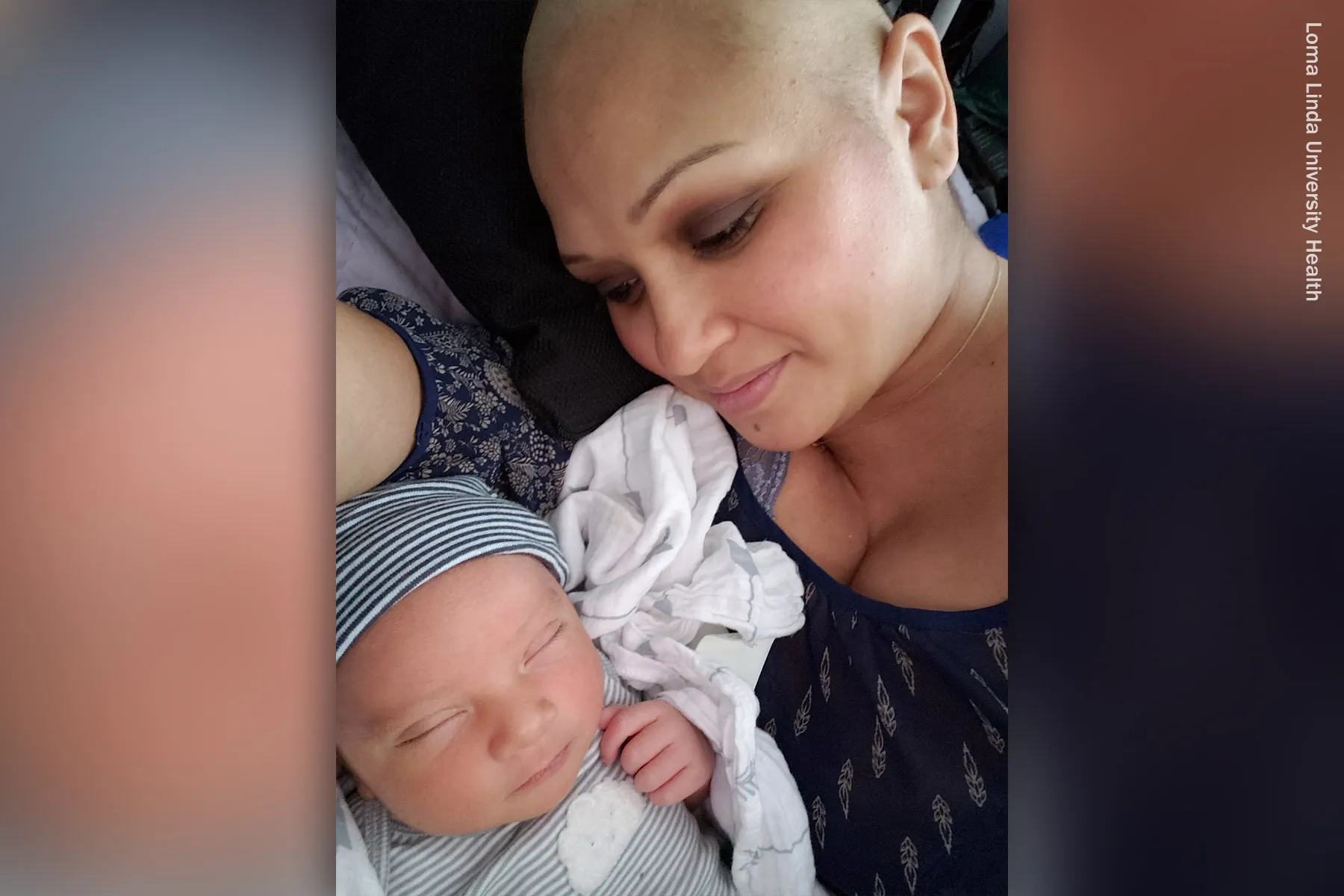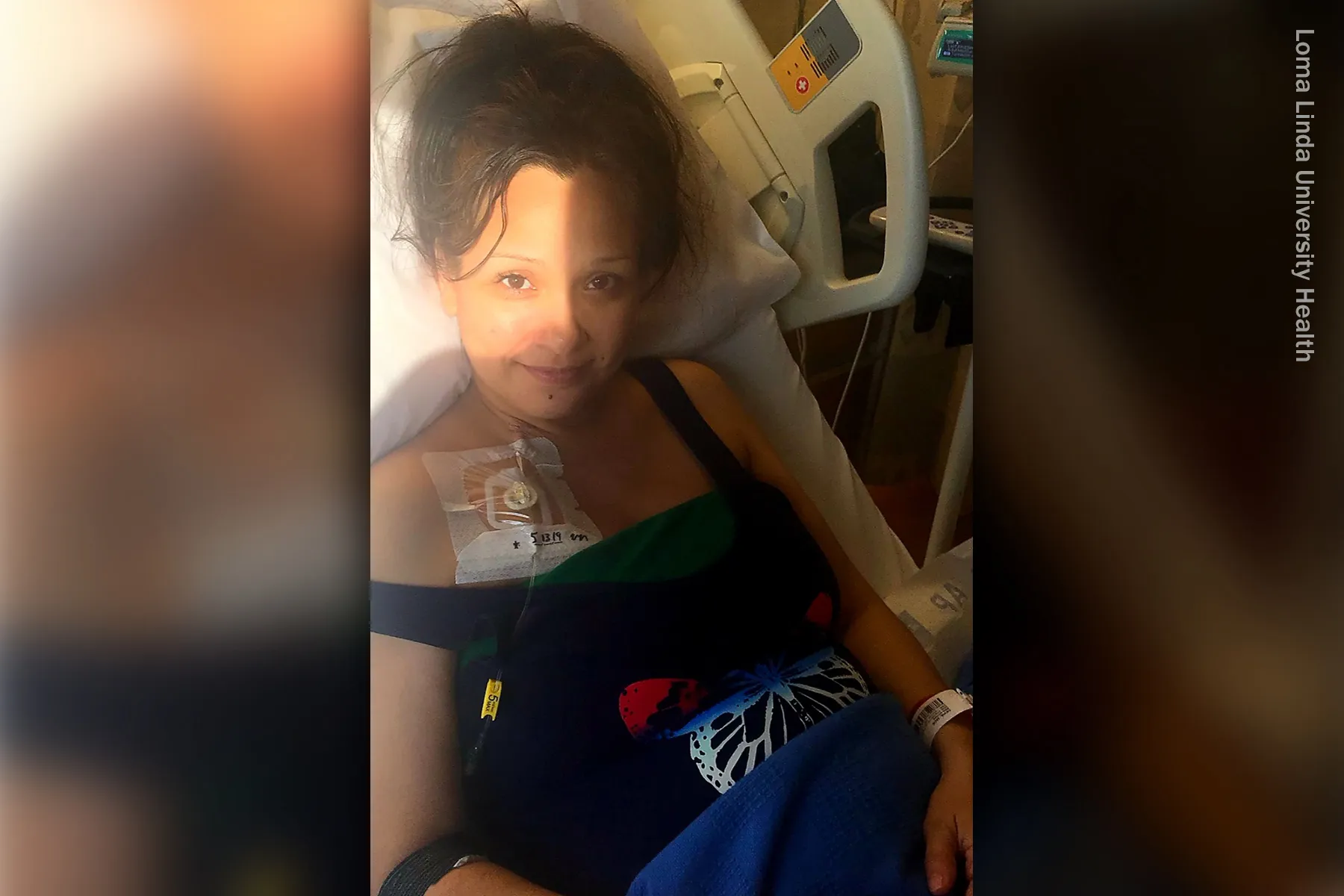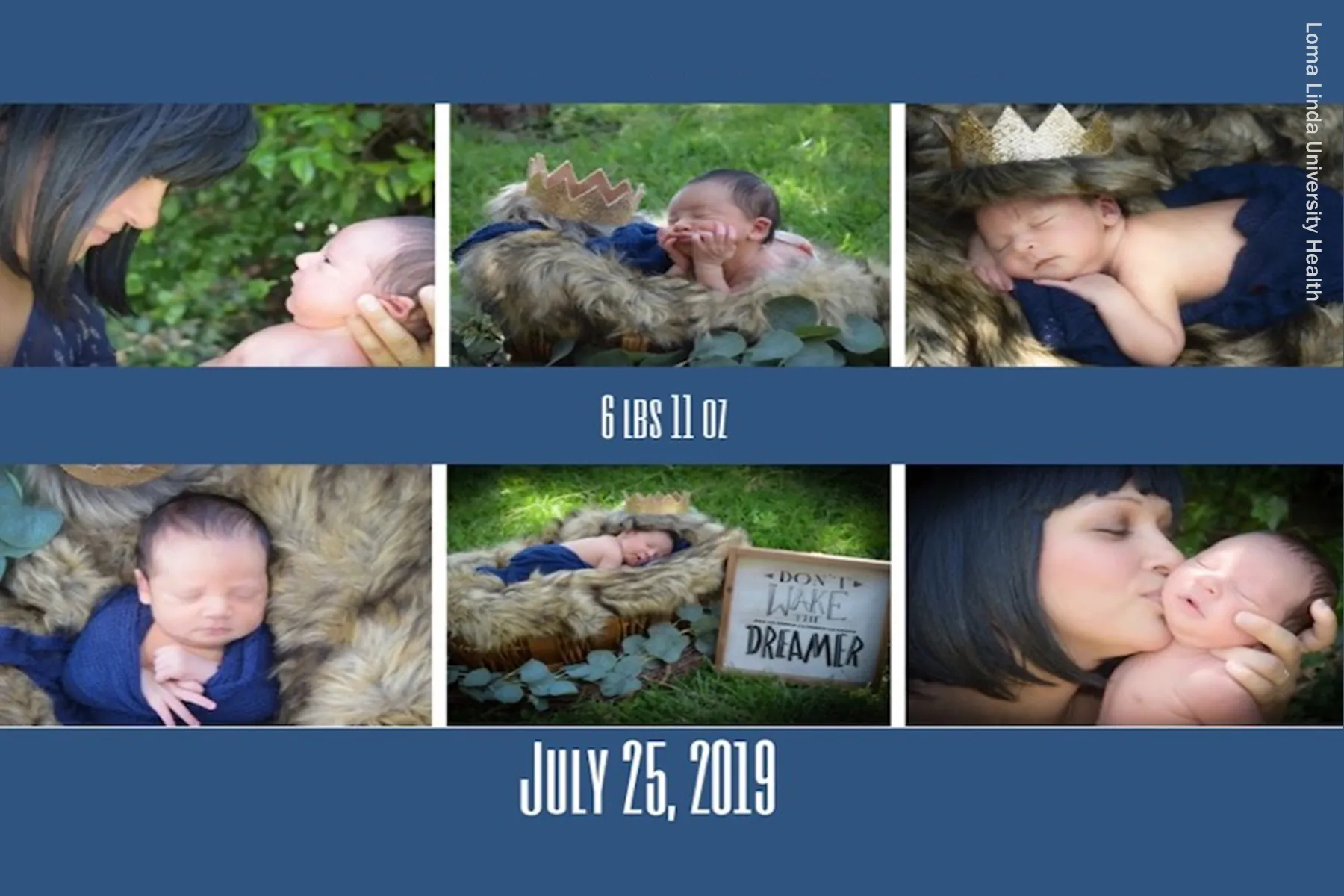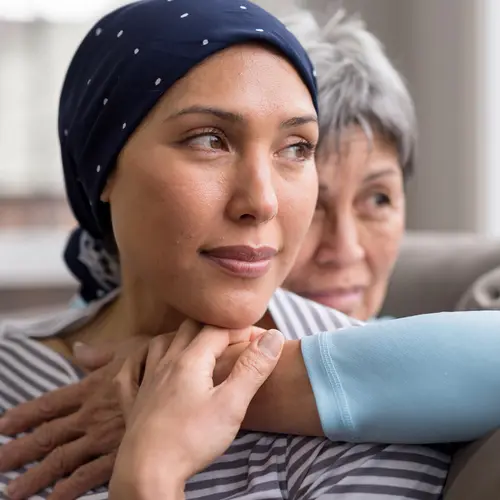Nov. 4, 2019 -- Jade Devis was just a few months pregnant when she learned she had a fast-growing type of breast cancer. Her OB-GYN’s outlook was grim, she says: “My baby was too young to save, and it was life-and-death for me.”
“Within an hour of leaving the office and her telling me that, I was crying in the car, parked somewhere,” Devis says.
But today, after getting a lumpectomy and months of chemotherapy during her pregnancy, this 36-year-old bookkeeper in California is a happy first-time mom to Bradley, a 3-month-old boy. “We’re doing really good right now,” she says.

She’s still getting chemo, with her final infusion scheduled for the end of November. Then she’ll get radiation therapy for a month. These treatments, along with surgery, are the main therapies for triple-negative breast cancer (TNBC), the disease Devis is battling.
“Hoping for the best – [a] cure!!” says her oncologist, Gayathri Nagaraj, MD, of Loma Linda University Cancer Center in California.
TNBC is an aggressive type of breast cancer that’s more common among women under 40, like Devis. It’s called triple negative because it isn’t fueled by the hormones estrogen or progesterone, or by a protein called HER2. That means hormone therapy and HER2-targeted drugs that treat other types of breast cancer don’t work for TNBC, which leaves those who have it with fewer treatment options.
Devis says she suspected something was wrong before her doctor diagnosed her with cancer. In January, just weeks into her pregnancy, she noticed a hard, painful lump above her left breast. The area felt like it was burning. She says her doctor at the time told her it was probably a clogged milk duct. But Devis was skeptical, and she kept voicing her concerns until she got a biopsy. It showed that she had cancer.
“I don’t think anybody understood my symptoms,” she says.
Triple-negative breast cancer can have the same signs as other types of breast cancer, and a new lump or mass is the most common red flag. Other symptoms of breast cancer are breast swelling, dimpling, or a nipple turning inward. Since there are a lot of warning signs, it’s important to have your doctor check any changes you notice.
After Devis got surgery to remove her cancerous lump and 10 nearby lymph nodes -- operations that are generally safe for pregnant women -- she went to the Loma Linda University Cancer Center in May to get the first of several rounds of chemotherapy.
“I was very upset because I thought I’d gone through so much already with the surgery, and my body was already bruised and injured and tired, and I was 6 months pregnant,” she says.
While chemotherapy isn’t safe for an unborn baby during the first 3 months of pregnancy, certain chemo drugs seem safe during months 4 through 9, the American Cancer Society says. Research shows that they don’t raise the chances of birth defects, stillbirths, or health problems soon after birth, though they could make an early delivery more likely. Also, researchers aren’t sure if chemo drugs could affect a baby’s health later in life.
In Devis’s case, her oncologist, Nagaraj, took safety measures to protect her and her baby. Nagaraj and her team made sure all the medications they gave Devis -- including the chemo and meds to treat its side effects -- were safe for her. They also carefully planned when they’d start and stop her chemo so they could pause it a safe number of weeks before Devis was scheduled to be induced. In general, the American Cancer Society says that getting chemo after 35 weeks of pregnancy or within 3 weeks of delivery is risky because it can lead to complications like bleeding or an infection during childbirth.
Devis also had a whole team caring for her. Nagaraj says maternal-fetal medicine specialists kept close tabs on the baby’s health. Pharmacists double-checked the safety of all her medicines. A dietitian gave her nutrition advice. Social workers provided psychological support through counseling. Nurses helped coordinate her care.

Even though the baby’s father wasn’t there for Devis, she got support from her mother and sisters, who did things like cook meals and go to the market for her. That was important to Devis, “because at the time I was hiding,” she says. She’d lost her hair during chemo and “didn’t want to walk around, go out pregnant and bald -- a lot of insecurities there.”
Uncertainty plagued her during treatment. Would the baby be OK? Would the chemo harm him? “I didn’t have a nursery yet set up because I wasn’t sure what the outcome was going to be,” she says. “And I was refusing baby gifts from everybody because I didn’t want to come home and have to return all these baby gifts in the worst-case scenario.”
“The whole time I felt like I was being punished. I would sit in my room like I was in a jail cell, just waiting for the verdict,” she says.
Her worst fears didn’t come true. In late July, she gave birth to a healthy son. “When the baby was born, and I heard crying, and the NICU cleared him, it was like the verdict was in,” she says. “It’s like that ‘we made it’ feeling, you know? ‘We’re here, we did it.’”


